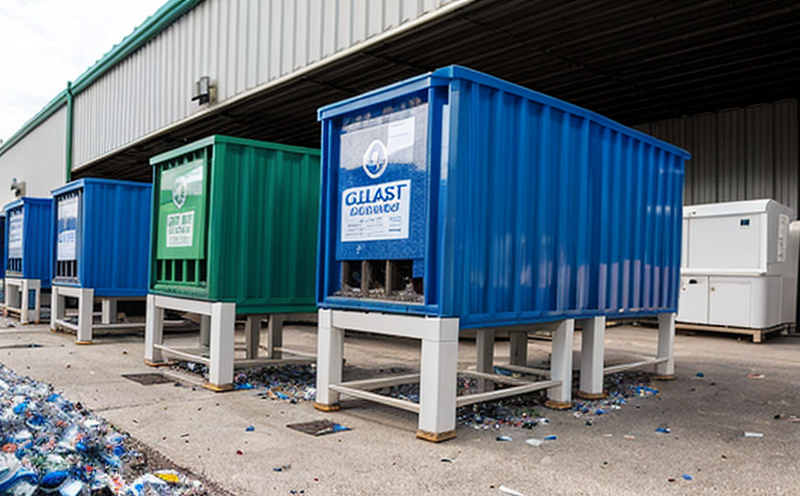EN 12915 Ceramic Waste Sorting Efficiency
The European Standard EN 12915 specifies a method for determining the sorting efficiency of waste streams, particularly focusing on ceramic materials. This standard is crucial in ensuring that recycling processes are optimized to recover valuable materials from waste streams efficiently.
Ceramic waste, which includes products like tiles, pots, and porcelain items, represents an important component of municipal solid waste (MSW). The efficient sorting of these ceramics can lead to significant environmental benefits by reducing landfill usage and enabling the production of recycled ceramics for new products. This service ensures that recycling facilities are meeting stringent standards set forth in EN 12915.
The test procedure involves subjecting ceramic waste samples to a series of separation processes, including magnetic separators, eddy current separators, or air classifiers. The sorting efficiency is then determined by comparing the proportion of sorted materials that meet the specified criteria against the total amount of input material. This process helps recycling facilities understand their performance and identify areas for improvement.
The testing methodology not only supports compliance with European regulations but also aids in the optimization of recycling processes, leading to more sustainable waste management practices.
Scope and Methodology
| Step | Description |
|---|---|
| 1. | Select representative samples of ceramic waste from the source to be tested. |
| 2. | Subject the selected samples to a series of separation processes as per EN 12915 guidelines. |
| 3. | Weigh and measure the sorted materials against the unsorted portion. |
| Parameter | Acceptance Criteria |
|---|---|
| Ceramic Tiles Sorted | ≥80% sorted efficiency for tiles ≥1cm x 1cm |
| Porcelain Items Sorted | ≥75% sorted efficiency for porcelain items ≥2mm thickness |
- Step-by-Step Testing: The process starts with sample selection, followed by separation using specified equipment.
- Data Collection: Precise measurements are taken to ensure accurate data for calculation.
- Reporting: Detailed reports outline the sorting efficiency and areas needing improvement.
Eurolab Advantages
We at Eurolab offer unparalleled expertise in conducting EN 12915 tests, ensuring that our clients receive accurate and reliable results. Our state-of-the-art facilities are equipped with the latest technology to handle a wide range of ceramic waste samples.
Our team of experienced professionals adheres strictly to European standards, providing consistent and reproducible test results. We also offer comprehensive support in optimizing your recycling processes based on our findings, ensuring that you meet regulatory requirements while enhancing operational efficiency.
In addition to testing, Eurolab provides training sessions for quality managers and R&D engineers to enhance their understanding of the latest standards and best practices in waste management and recycling. This commitment to education ensures that our clients are well-equipped to stay ahead in a rapidly evolving industry.
Why Choose This Test
- Informed Decision-Making: Understand the efficiency of your sorting processes and make data-driven decisions to improve performance.
- Regulatory Compliance: Ensure that all operations are in line with EN 12915 standards, thus avoiding penalties and fines.
- Sustainability: Contribute to environmental sustainability by optimizing the recovery of valuable resources from waste streams.
- Precision: Our tests provide precise measurements that help in refining sorting techniques for better outcomes.





